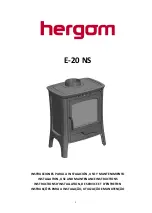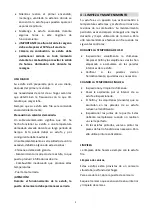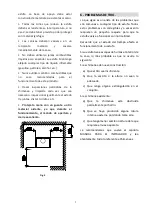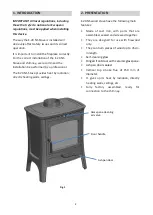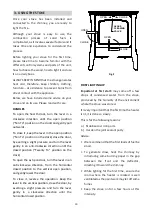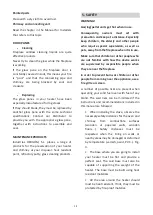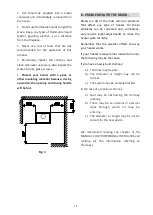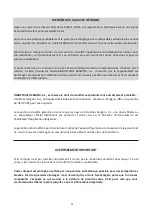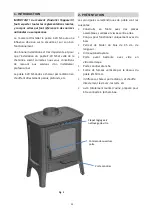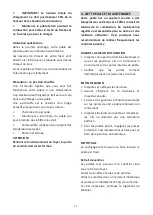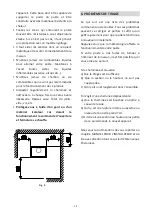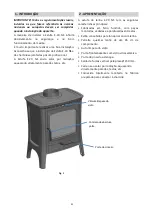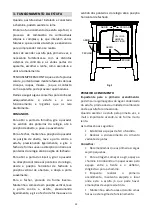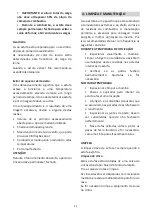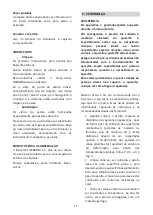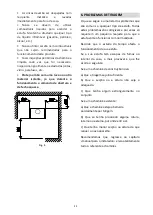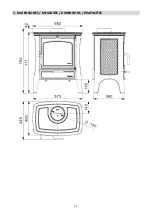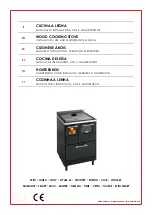
11
•
IMPORTANT! The total height of the fire
load should not exceed 50% of the height of
the combustion chamber.
•
The heater must be closed at all times
during combustion to prevent smoke from
leaking out. Only open to add fuel.
Daily use
After lighting up for the first time, your heater
will be ready for daily use.
Your heat requirements will be obtained based
on the frequency and the amount of firewood
you load.
When your heater is cold, we recommend
lighting it up slowly.
Overheating.
Overheating means that you have operated
your
heater
at
an
excessively
high
temperatures for a long period of time. This can
damage your appliance and, therefore, it is a
situation that must be avoided.
Overheating is the result of excessive draw, due
to any of the following reasons:
•
The chimney is too big.
•
Improper maintenance of the stove, which
may result in air infiltration.
•
Inappropriate fuel that produces high
temperatures.
•
Door not closed correctly.
ATTENTION!
During the operation of the stove, the ash pan
door must be perflectly closed.
4 - CLEANING & MAINTENANCE
Your heater is a device that is subjected to
extreme temperatures and to the corrosive
effects of combustion residual materials.
Regular maintenance is essential for a longer
life and improved user experience. We
recommend
performing
the
following
inspections frequently.
DURING THE SEASON
•
Perform a visual inspection of the chimney.
Clean soot and tar if they have begun to
accumulate on the inner walls of the heater.
•
Check whether the doors close tightly;
adjust if necessary.
AT THE END OF THE SEASON
•
Inspect and clean the chimney.
•
Use the vacuum cleaner to clean inside the
heater and inspect it.
•
Any soot and tar (creosote) that has
accumulated on the walls of the heater will
hinder performance.
•
Inspect door seals. These should be
replaced when they no longer seal the door
perfectly.
•
In the case of painted heaters, paint the cast
iron parts again if necessary.
CLEANING
Cleaning should always be performed when the
heater is cold.
Cleaning ash.
These heaters are equipped with an ash pan
located at the bottom of the heater.
Remove the ash pan and remove the ash.
Ash should be emptied into a metal container
and immediately removed from the house.
If necessary clean the ash pan housing.

